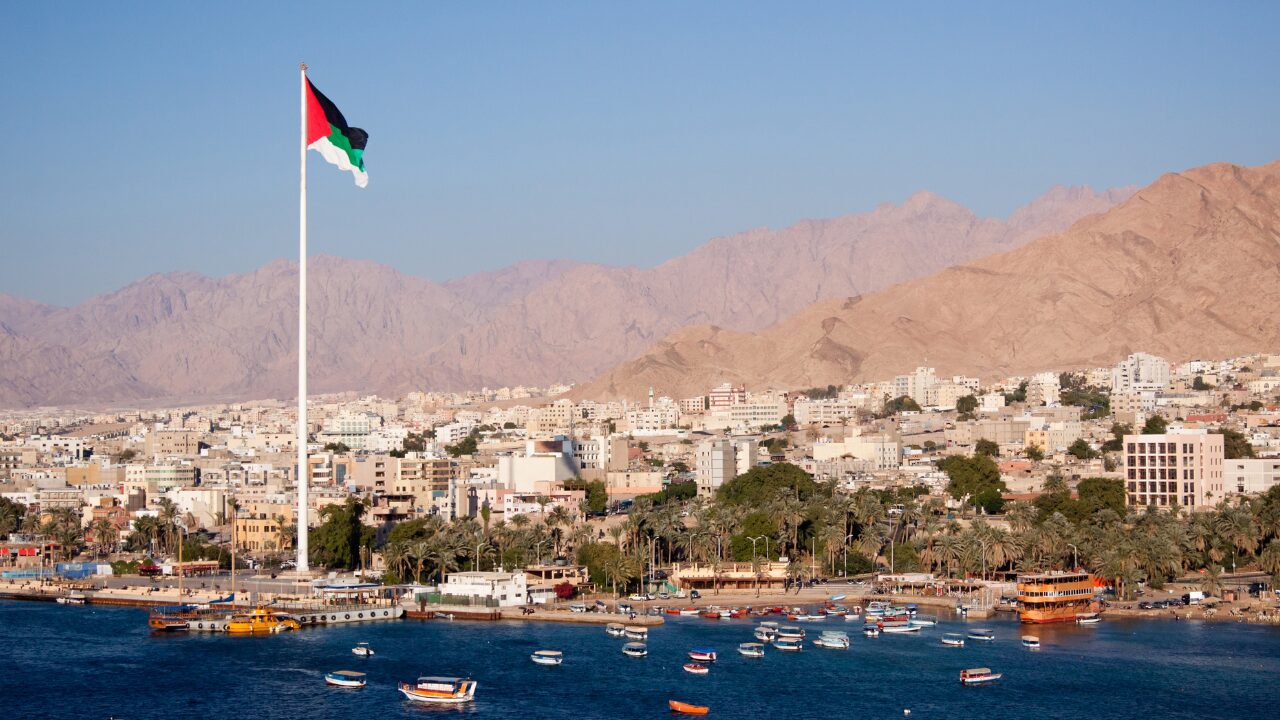Date first published: 01/05/2025
Key sectors: defence, politics
Key risks: political stability; political violence
Risk development
On 15 April Jordanian authorities arrested 16 individuals and on 1 May sentenced four to 20 years, due to their alleged links to a Muslim Brotherhood plot to attack multiple targets using drones and rockets. Intelligence officials claimed the group had smuggled weapons, destroyed evidence and received foreign backing from groups in Lebanon. On 23 April the government formally banned the Brotherhood, confiscated its assets and criminalised expressions of support across media, civil society and online platforms.
Why it matters
The ban marked the culmination of a decade-long campaign to undermine the Brotherhood, once Jordan’s most organised opposition force. Although security concerns about the group’s ideology and regional ties are long-standing, the crackdown’s scale and timing point to wider strategic motives. The Brotherhood’s vocal support for Palestinians amid the Israel-Gaza war has amplified public dissent in Jordan, particularly among Palestinian-origin communities. This brought them into confrontation with the monarchy’s balancing act: maintaining domestic stability while preserving its 1994 peace treaty with Israel.
King Abdullah II’s visit to Saudi Arabia on the same day the ban was announced suggests coordination with key allies. Jordan now aligns more closely with Egypt, the United Arab Emirates (UAE) and Saudi Arabia – countries that have similarly outlawed the Brotherhood and framed it as a destabilising actor. This shift is both domestic and geopolitical, reflecting Amman’s efforts to balance internal cohesion with regional stability and foreign policy alignment.
The crackdown also aligns with preparations for the royal transition, as Crown Prince Hussein is expected to ascend to the throne in the coming years. By targeting the Brotherhood, the government aims to eliminate opposition and secure a stable environment for the heir’s succession.
Background
The Muslim Brotherhood is a Sunni Islamist movement founded in Egypt in 1928. While its Jordanian branch has historically operated legally and refrained from advocating violence, its ideological transnationalism and political activism have long been viewed with caution by the country’s monarchy.
Over the decades, the Brotherhood has built a broad grassroots support base, particularly among urban Palestinian-Jordanians. Its political wing, the Islamic Action Front (IAF), has participated in elections, held seats in parliament and engaged with state institutions. However, tensions rose significantly following the 2011 Arab Spring. Authorities revoked the Brotherhood’s license in 2014, seized properties and blocked electoral participation, part of a gradual but persistent effort to constrain its influence.
Regionally, Egypt, Saudi Arabia and the UAE have labelled the Brotherhood a terrorist organisation, citing links to extremist activity and anti-state mobilisation. Jordan’s latest move reflects similar concerns, though it also signals a broader realignment with these regional partners amid the current war in Gaza and heightened Israeli-Palestinian tensions.
Risk outlook
The likelihood of continued counterterrorism and security-focused operations targeting Brotherhood-linked individuals and affiliated networks is high. Authorities will likely intensify surveillance and legal measures to dismantle residual organisational structures and prevent informal mobilisation, particularly those perceived to be supported by foreign actors.
The IAF faces a high risk of political marginalisation. Although not formally banned, the IAF may encounter increasing legal and administrative obstacles, including de-registration and electoral restrictions. If it does not fully disassociate from the banned Brotherhood, its political future will remain highly uncertain, with the likelihood of de facto dissolution in the next year considered medium to high.
Public demonstrations or unrest are very likely in Brotherhood strongholds, although widespread instability is unlikely. Jordan’s security apparatus has a strong record of managing protests with minimal escalation. However, the risk of underground activism or lone-actor radicalisation may rise, particularly if perceived grievances are left unaddressed.

